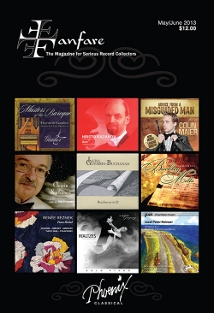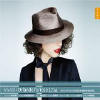Texte paru dans: / Appeared in: |
|
|
Reviewer: Alan
Swanson There is undoubtably a Vivaldi opera from 1727 called Orlando furioso (RV 728), and a Venetian one of the same title from 1713, but Federico Maria Sardelli argues that at least the former is a different opera from the present one, though on the same story by Ariosto. The Naïve recording of RV 728, under Jean-Christoph Spinosi, received three differing reviews, in 29:2 and 35:6, but I have not heard or seen those performances. The box and booklet jacket of this one calls it Orlando 1714 but the title page insists it is Orlando furioso RV 819. The Ryom number has apparently been given by Sardelli, whose bio on the Modo Antiquo website informs us that “Peter Ryom has chosen him to be the person in charge of the continuing Vivaldi Catalogue (RV).” The Wiki article on him also describes him as a “Historicist composer.” The manuscript of this version, RV Anh. 84, was reported in The Guardian (July 15, 2012) as having been “described by music experts as ‘a bombshell in the world of Baroque opera’” though the newspaper declined to say who those “experts” are whom it cited. The term is also used in the Naïve ad for this recording. Whatever its demolitionary properties, it is certainly highly fragmentary and what we are given here is Sardelli’s (and three others’) reconstruction and recomposition of what there is. One cannot ask a booklet accompanying a recording to contain all the details of an entire musicological argument, but given the information presented here, it must be said that there is much speculative gliding between those facts noted and the assertions made about what this manuscript actually represents. Indeed, the musicologist, Fréderic Delaméa, even argues, in an essay in the booklet, that the 1713 Orlando furioso, unambiguously attributed to Giovanni Alberto Ristori, was likely actually by Vivaldi. As the music to that first Orlando is missing, this argument is indemonstrable and, therefore, gratuitous. There is a lot missing in RV Anh. 84, and Sardelli includes a useful table summarizing what has been done about the 15 missing arias: Five have been adopted or adapted from the first two operas by Vivaldi and four from other composers. The remaining six have been newly composed from their remaining fragments, a bass line or sometimes only the incipit of the song line. Nothing is said about the recitatives and, in this context, one might, perhaps, want to make the assumption that Sardelli has provided these, as well. He has not invented music for the third act, all of which is missing. As the remains do not include an overture, Sardelli asserts that the concerto RV 781 was “probably originally intended for an opera” and supplies it here, something Alessandro de Marchi did as well for his recording of Vivaldi’s Orlando fintopazzo, RV 727, in this same Naïve series. I wish more had been said about the text: It is said to be that by Grazio Braccioli for the 1713 production, which is largely found in the 1727 version, but they are not identical. Sardelli is an old hand at this sort of thing, having made many editions of Vivaldi’s music, not least that of the 1727 Orlando furioso, RV 728. For this Orlando, he sees his work as “placing myself in the position of the pupil whom the master has left with only his sketches.” There are two issues here. Given that many other Vivaldi operas still await the light of day in the university library of Turin, why is this (heavily reconstructed) one necessary now, and what is the result of all this work? As to the first, it may simply be that Sardelli’s work on RV 728 led naturally to interest in a related piece, RV Anh. 84. There is nothing wrong with such enquiry and it is, indeed, how musicologists work: One piece catches the eye, another does not. As to the second, what we get is two thirds of an opera that is certainly in parts by Vivaldi and is, at least, Vivaldi-an. What we do not get is an opera by Vivaldi. All of this noted, one must then say at once that Sardelli has done his work well. He has a real feel for Vivaldi’s style and I think most listeners will not easily be able to tell where Vivaldi stops and Sardelli starts. The performance, too, is convincing and there is not a weak link among the singers, many of whom are, by reason of their frequent participation in this series, themselves now also “old hands” at Vivaldi. I have to note, as well, that, whoever wrote them, the recitatives are done in an exemplary manner. Sardelli takes brisk tempi, to say the least, and it is perhaps here questions might start. Two struck me. First, the new arias are almost all fast and furious regardless of their text, and their accompaniments are fairly uniform and driving, lacking the varied and colorful play Vivaldi always seemed to find in text, tune, and accompaniment, as indeed he did in his preceding opera, Orlando fintopazzo. There is little variation here, and less relaxation. Second, one of the most attractive and characteristic aspects of Vivaldi’s musical lines is their unpredictability, when he often lets a melody touch briefly on an unexpected, usually passing, harmonic context, or he plays with the rhythm. Sardelli doesn’t often take this risk. Acquiring this recording, then, is the reader’s call. What it is is a difficult question, but it is well done and, from that point of view, will not disappoint the listener. | |
|
|
|
|
|
|
|
Cliquez l'un ou l'autre
bouton pour découvrir bien d'autres critiques de CD |
|




